In today's eco-conscious business landscape, fully integrated fresh produce companies, operating from "grower to marketing", are increasingly realising the significance of sustainable practices. These forward-thinking organisations acknowledge that their dedication to environmental responsibility not only aligns with global sustainability objectives but also enhances their corporate image, regulatory compliance, and overall performance.
One critical aspect of this commitment is the selection of lubricants used in their operations. In this article, we will delve into the environmental, compliance, corporate ESG (Environmental, Social, and Governance), and performance benefits of food-grade lubricants for such companies.
Environmental Responsibility: Choosing Sustainable Lubricants
Modern fresh produce companies are acutely aware of their operational impact on the environment, from water usage to waste generation. Nevertheless, one frequently underestimated aspect is the use of lubricants.
Industrial lubricants, when applied in machinery and equipment, can lead to the release of hazardous chemicals and contaminants into the environment. Conversely, food-grade lubricants are purposefully crafted to be eco-friendly, ensuring minimal ecological impact.
Food-grade lubricants typically feature biodegradability, thus lowering the risk of soil and water contamination. This perfectly aligns with the sustainability objectives of integrated fresh produce companies aiming for a reduced environmental footprint in their farming, processing, and distribution operations.
By embracing food-grade lubricants, these organisations contribute to cleaner and greener agricultural practices, which can be a valuable selling point for environmentally conscious consumers.
Regulatory Compliance: Ensuring Food Safety
The utilisation of lubricants in the food and beverage industry is heavily regulated. Integrated fresh produce companies must adhere to these regulations to maintain compliance and ensure product safety.
Food-grade lubricants are meticulously designed to comply with international food safety standards. Choosing these lubricants guarantees adherence to regulations, mitigating the risk of fines, product recalls, and reputational harm.
Moreover, food-grade lubricants undergo comprehensive testing to ensure their safety for incidental (and in some case direct) contact with food. This level of safety and compliance assurance is invaluable to fully integrated fresh produce companies that prioritise consumers' health and safety.
Corporate ESG Commitment: A Competitive Edge
Environmental, Social, and Governance (ESG) considerations have become central to corporate decision-making and investment strategies. Fresh produce companies that embrace ESG principles gain a competitive advantage, attracting responsible investors and strengthening their brand reputation. Food-grade lubricants play a pivotal role in the ESG strategy of such organisations.
By opting for food-grade lubricants, companies effectively demonstrate their commitment to environmental sustainability (E), workplace safety (S), and adherence to ethical business practices (G). This alignment with broader corporate ESG goals enhances their overall ESG performance and makes them more appealing to stakeholders who prioritise responsible and sustainable investments.
Performance Value: Efficiency and Reliability
The utilisation of food-grade lubricants is not merely about compliance and sustainability; it also has a positive impact on operational performance. These lubricants are precisely engineered to endure the rigorous conditions of food processing equipment while providing superior lubrication and protection. Their high-performance characteristics translate into reduced downtime, extended equipment lifespan, and improved overall operational efficiency.
Conclusion
Fully integrated fresh produce companies, identifying as "grower to marketing" organisations, can reap substantial rewards by adopting food-grade lubricants. These lubricants align with their environmental responsibility, ensure regulatory compliance, enhance their corporate ESG image, and elevate operational performance.
Choosing food-grade lubricants is not only a prudent business decision but also a stride toward a more sustainable and responsible future for the entire food industry. By making this transition, these organisations not only safeguard the environment but also fortify their position as industry leaders committed to excellence, ethics, and sustainability.









